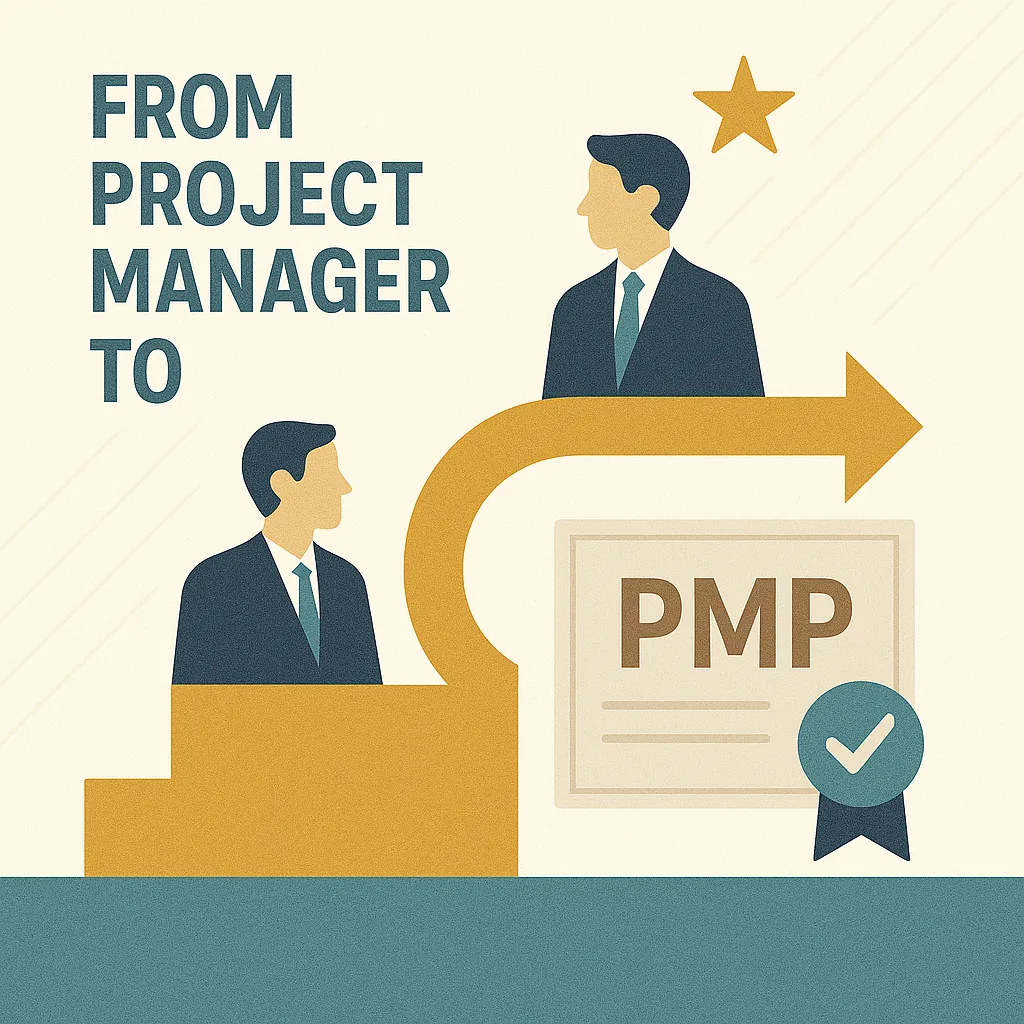Introduction
The distinction between a project manager and a project leader is becoming increasingly significant. While both roles are essential for the successful execution of projects, they embody different responsibilities and skill sets. A project manager typically focuses on the tactical aspects of project execution, such as planning, scheduling, and resource allocation. In contrast, a project leader is expected to inspire and guide teams, fostering a collaborative environment that drives innovation and strategic alignment. This shift from managing projects to leading teams requires a robust set of leadership skills, which are crucial for navigating the complexities of modern project environments.
Leadership skills are paramount in project management as they enable professionals to effectively communicate vision, motivate team members, and manage stakeholder expectations. A project leader must not only ensure that projects are completed on time and within budget but also cultivate a culture of trust and engagement among team members. This is where the Project Management Professional (PMP) certification comes into play.
The PMP certification, awarded by the Project Management Institute (PMI), is a globally recognized credential that signifies a project manager’s expertise in leading and directing projects. It encompasses a comprehensive understanding of project management principles, methodologies, and best practices, which are essential for effective leadership. Moreover, obtaining a PMP certification can enhance career opportunities, as it distinguishes certified professionals from their non-certified counterparts, often leading to higher salary potential and greater job security.
For mid-level project managers aspiring to transition into leadership roles, pursuing PMP certification can be a pivotal step. It not only equips them with the necessary skills to lead effectively but also demonstrates a commitment to professional development and excellence in the field of project management. As the demand for skilled project leaders continues to rise, the value of PMP certification in facilitating this transition cannot be overstated.
Understanding PMP Certification
The Project Management Professional (PMP) certification is a globally recognized credential that signifies a professional’s expertise in project management. It is awarded by the Project Management Institute (PMI) and is considered a benchmark for project management excellence. Here’s a comprehensive overview of what PMP certification entails, its eligibility criteria, and the process of acquiring it.
Overview of the Project Management Professional (PMP) Certification
PMP certification is designed to validate a project manager’s skills and knowledge in leading and directing projects. It encompasses a wide range of project management methodologies and best practices, equipping professionals with the tools necessary to manage projects effectively. The certification is highly regarded in the industry and is often seen as a prerequisite for higher-level project management positions. As of now, there are over 470,000 PMP-certified professionals worldwide, highlighting its significance in the field [8].
Eligibility Criteria for Obtaining PMP Certification
To qualify for the PMP certification, candidates must meet specific educational and professional experience requirements. The criteria are as follows:
- Educational Background: Candidates must have either:
- A four-year degree (bachelor’s or global equivalent) along with at least 36 months of project management experience leading projects, or
- A high school diploma or an associate’s degree (or global equivalent) with at least 60 months of project management experience leading projects [11].
- Project Management Education: Regardless of educational background, candidates must also complete 35 hours of project management education. This can be achieved through various training programs, workshops, or courses that cover project management principles and practices [11].
The Process of Acquiring the Certification
The journey to obtaining PMP certification involves several key steps:
- Application Submission: Candidates must fill out an application detailing their project management experience and education. This application is reviewed by PMI to ensure eligibility.
- Payment of Fees: Once the application is approved, candidates must pay the certification fee. PMI members typically receive a discount on this fee.
- Exam Preparation: Candidates should prepare for the PMP exam, which tests their knowledge of project management concepts, tools, and techniques. Various study materials, courses, and practice exams are available to assist in preparation.
- Taking the Exam: The PMP exam consists of 180 multiple-choice questions that must be completed within a four-hour time frame. The questions cover a range of topics, including project initiation, planning, execution, monitoring, and closing [5].
- Maintaining Certification: After obtaining the PMP certification, professionals must earn 60 professional development units (PDUs) every three years to maintain their certification status [11].
Leadership Skills Emphasized in PMP Certification
The transition from a project manager to a project leader is a significant step in a professional’s career, and obtaining a Project Management Professional (PMP) certification can play a crucial role in facilitating this transition. The PMP certification process emphasizes various leadership skills that are essential for effective project leadership. Here, we explore the specific competencies cultivated through the PMP certification, drawing insights from the PMBOK Guide and real-world applications.
Focus on Leadership Competencies in the PMBOK Guide
The PMBOK (Project Management Body of Knowledge) Guide serves as a foundational resource for project managers seeking PMP certification. It outlines essential project management processes and knowledge areas, with a notable emphasis on leadership competencies. The guide highlights the importance of:
- Communication: Effective communication is vital for project success. The PMBOK Guide stresses the need for project managers to convey information clearly and persuasively to team members, stakeholders, and clients. This skill is crucial for ensuring that everyone is aligned with the project goals and objectives [1].
- Stakeholder Management: Understanding and managing stakeholder expectations is another key competency emphasized in the PMBOK. Project leaders must identify stakeholders, analyze their needs, and engage them throughout the project lifecycle. This skill helps in building strong relationships and ensuring stakeholder satisfaction [2].
- Conflict Resolution: The ability to navigate conflicts and facilitate resolution is essential for maintaining team cohesion and project momentum. The PMBOK Guide provides strategies for addressing conflicts constructively, enabling project leaders to foster a collaborative environment [3].
Key Leadership Skills Developed Through PMP Certification
The PMP certification process not only enhances technical project management skills but also cultivates critical leadership abilities that are necessary for effective project leadership. Some of the key leadership skills developed include:
- Motivational Skills: PMP-certified professionals learn how to inspire and motivate their teams. This involves understanding team dynamics and employing techniques to encourage high performance and engagement [4].
- Decision-Making: The certification process equips project managers with the tools to make informed decisions under pressure. This includes assessing risks, evaluating alternatives, and making choices that align with project objectives [5].
- Resource Allocation: Effective project leaders must be adept at allocating resources efficiently. PMP training emphasizes strategic resource management, ensuring that teams have the necessary tools and support to succeed [6].
Real-World Applications of Leadership Skills
The leadership skills gained through PMP certification are not merely theoretical; they have practical applications in real-world project scenarios. For instance:
- Communication in Action: A project manager leading a cross-functional team may utilize their communication skills to facilitate regular updates and feedback sessions, ensuring that all team members are informed and engaged. This proactive approach can lead to improved collaboration and project outcomes [7].
- Stakeholder Engagement: In a project involving multiple stakeholders, a PMP-certified leader can effectively manage expectations by conducting stakeholder analysis and maintaining open lines of communication. This helps in addressing concerns early and fostering a sense of ownership among stakeholders [8].
- Conflict Resolution Example: When conflicts arise within a project team, a project leader trained in conflict resolution can mediate discussions, helping team members express their viewpoints and find common ground. This not only resolves the immediate issue but also strengthens team relationships for future collaboration [9].
The Transition from Project Manager to Project Leader
Transitioning from a project manager to a project leader is a significant career step that involves not only a change in responsibilities but also a shift in mindset and skill set. Mid-level project managers often face various challenges as they navigate this transition, but obtaining a Project Management Professional (PMP) certification can provide valuable tools and insights to facilitate this journey.
Common Challenges Faced by Project Managers
- Shift in Responsibilities: Project managers typically focus on the tactical aspects of project execution, such as scheduling, budgeting, and resource allocation. As they move into leadership roles, they must embrace strategic thinking and broader organizational goals, which can be daunting.
- Leadership Skills Gap: Many project managers excel in technical skills but may lack the necessary leadership qualities, such as inspiring teams, managing conflicts, and fostering collaboration. This gap can hinder their effectiveness in a leadership position.
- Communication Barriers: Effective communication is crucial for leaders. Project managers may struggle with articulating their vision and engaging stakeholders at all levels, which is essential for driving project success.
- Resistance to Change: Transitioning to a leadership role often involves implementing new processes and changes within teams. Project managers may face resistance from team members who are accustomed to established ways of working.
The Importance of a Leadership Mindset
Adopting a leadership mindset is vital for effective project delivery. Leaders must:
- Inspire and Motivate: A project leader should be able to inspire their team, fostering a sense of ownership and accountability. This requires a shift from merely managing tasks to empowering team members to take initiative.
- Strategic Vision: Leaders need to align project goals with the organization’s strategic objectives. This involves understanding the bigger picture and making decisions that contribute to long-term success.
- Adaptability: The ability to adapt to changing circumstances and lead teams through uncertainty is crucial. A leadership mindset encourages flexibility and resilience in the face of challenges.
How PMP Certification Can Help Overcome These Challenges
- Enhanced Leadership Skills: The PMP certification process emphasizes leadership competencies, including team dynamics, conflict resolution, and stakeholder engagement. This training equips project managers with the skills necessary to lead effectively and inspire their teams [6][12].
- Structured Approach to Project Management: PMP certification provides a standardized framework for project management, which helps leaders implement best practices and improve project outcomes. This structured approach can ease the transition by providing clear guidelines for managing complex projects [7][13].
- Risk Management Training: PMP certification includes comprehensive training in risk management, enabling project leaders to identify potential issues proactively and develop strategies to mitigate them. This skill is essential for navigating the uncertainties that often accompany leadership roles [12].
- Global Recognition: The PMP certification is recognized worldwide, enhancing a project manager’s credibility and opening doors to leadership opportunities across various industries. This recognition can be a significant advantage when seeking to advance into leadership positions [11][14].
- Increased Earning Potential: PMP-certified professionals often enjoy higher salaries compared to their non-certified counterparts, with reports indicating an increase of up to 22% in earnings. This financial incentive can motivate project managers to pursue certification as a means to enhance their career prospects [10][15].
Is PMP Certification Worth It? Analyzing the ROI
For mid-level project managers aspiring to transition into leadership roles, the decision to pursue Project Management Professional (PMP) certification often hinges on its perceived return on investment (ROI). This section critically assesses the value of obtaining PMP certification, focusing on salary increases, career advancements, and broader personal and professional growth.
Salary Increases and Career Advancements
- Higher Earnings: Project managers with PMP certification typically earn more than their non-certified counterparts. In fact, statistics indicate that certified professionals can expect a significant salary boost, with some reports suggesting an increase of up to 20% compared to their peers without certification [11]. This financial incentive is a compelling reason for many to pursue the credential.
- Career Progression: PMP-certified project managers often enjoy a competitive edge in securing leadership positions and job promotions. The certification is recognized as a standard of competence that employers actively seek, which can lead to faster career advancement [2][12]. In a landscape where the demand for certified project managers continues to grow, obtaining PMP certification can be a strategic move for those looking to elevate their careers [11].
Value Across Industries
- Global Recognition: The PMP certification is respected worldwide, making it a valuable asset across various industries. Whether in IT, construction, healthcare, or finance, the skills and knowledge gained through PMP training are applicable and beneficial [12]. This global recognition not only enhances employability but also opens doors to opportunities in diverse sectors.
- Demonstrated ROI for Employers: Organizations that hire PMP-certified professionals often experience improved project management capabilities, leading to better project outcomes. For instance, PMP-certified project managers have been shown to contribute to a 20% improvement in project schedule adherence in the energy sector [10]. This demonstrates that the certification not only benefits the individual but also provides tangible value to employers.
Personal and Professional Growth
- Leadership Skills Development: Beyond monetary benefits, PMP certification equips project managers with essential leadership skills. The training emphasizes strategic thinking, effective communication, and team management, which are crucial for those looking to transition into leadership roles [14]. These skills foster personal growth and enhance the ability to lead teams effectively.
- Networking Opportunities: Obtaining PMP certification also provides access to a global network of professionals. This community can be invaluable for sharing knowledge, experiences, and opportunities, further contributing to personal and professional development [12].
- Commitment to Continuous Improvement: Pursuing PMP certification reflects a commitment to professional growth and lifelong learning. This mindset is essential for aspiring leaders who must adapt to the evolving demands of project management and organizational change [13].
Conclusion
In the journey from project manager to project leader, obtaining a Project Management Professional (PMP) certification can be a pivotal step. This certification not only enhances technical project management skills but also cultivates essential leadership abilities that are crucial for effective team management and project success. Here are the key leadership skills gained through PMP certification:
- Enhanced Credibility: PMP certification signals a commitment to the field of project management, establishing credibility among peers and stakeholders. This recognition can significantly boost a project manager’s confidence and authority in leading teams and projects [5][12].
- Improved Communication Skills: The PMP curriculum emphasizes the importance of clear communication, enabling project managers to articulate project goals, expectations, and feedback effectively. This skill is vital for fostering collaboration and engagement within teams [8][10].
- Strategic Thinking and Decision-Making: PMP training equips managers with the ability to analyze complex situations, assess risks, and make informed decisions. This strategic mindset is essential for navigating challenges and steering projects toward successful outcomes [10][14].
- Team Empowerment and Engagement: The certification encourages project managers to focus on team culture and empowerment, which are critical for building high-performing teams. By fostering an environment of trust and engagement, leaders can motivate their teams to achieve greater results [8][9].
- Adaptability to Change: As the project management landscape evolves, PMP-certified professionals are better prepared to adapt to new methodologies and technologies, ensuring they remain relevant and effective in their roles [11][13].
In conclusion, pursuing PMP certification is not just about acquiring a credential; it is an investment in continuous learning and professional development. For mid-level project managers aspiring to elevate their careers and transition into leadership roles, the benefits of PMP certification are substantial. It opens doors to higher-level positions, increases salary potential, and enhances overall career opportunities. Therefore, aspiring project leaders are encouraged to consider PMP certification as a strategic move towards achieving their professional goals and making a significant impact in their organizations [2][4][12].
Find out more about Shaun Stoltz https://www.shaunstoltz.com/about/.
This post was written by an AI and reviewed/edited by a human.



